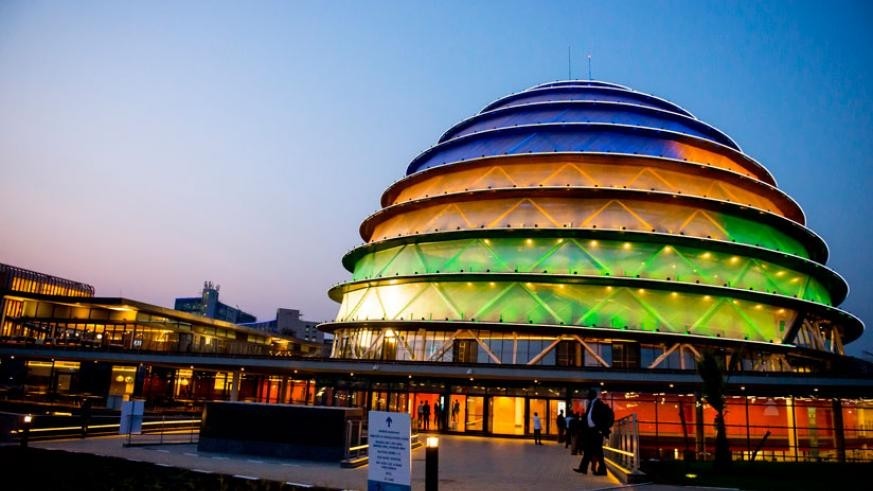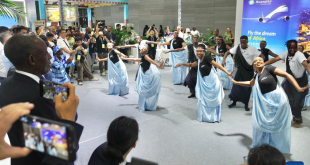
Rwanda has, for years, been a victim of blanket judgments and facile generalizations. Commentators, even amongst those willing to admit meaningful progress in the lives of Rwandans, have paradoxically refused to acknowledge the democratic credentials of Rwanda’s administration.
We live in a world where radical individual freedom has been preferred at the expense of social cohesion as part of the value system pushed by western powers for developing countries – which then informs commentators’ views; a world where any value system which prioritizes the needs of the community is deemed authoritarian.
It is the basis for the numerous calls to African countries not to emulate Rwanda’s “flawed political model.” However, if African countries should not emulate the values of Rwanda, why should they emulate those of the West?
One of the most redundant arguments fronted by these commentators has been that “authoritarianism” carries with it the enormous risk of eventual revolt. Ironically, this argument is made in the wake of a wave of protests and revolts across Europe and the US, the very countries which hold themselves up as the oldest models of individual-based democracies, but whose violent handling of protests have led to riots and unnecessary loss of life.
An introspective analysis should have led to the obvious conclusion that any political system which fails to deliver on the pressing needs of the people and which resists structural changes to overcome persisting challenges carries the enormous risk of eventual revolt. In other words, the fundamental issue is the lack of accountability.
Accordingly, the democratic credentials of any system of governance should be measured against its ability to demand effective accountability. In fact, this is the only way to promote good governance globally without indulging in lectures that belittle other people’s way of life. Instead, western commentators insist that Africans should obsess with the usual “democratic rituals” labeled as “best practice” even when such rituals often fail to produce any real democratic outcomes.
Secondly, the same western commentators have argued that genocide-denial laws have been used to silence dissent. However, they fail to mention any prominent figure that was targeted by such laws but who has not engaged in genocide denial, revisionism or minimization.
In so doing, they fail to ask the obvious questions: “Why would any ‘opposition’ member commenting on today’s Rwanda feel the need to revise the history of genocide? The evident answer to this is that some of these so-called political opponents have decided to mobilize on ethnic grounds because they lack the political maturity and the knowledge to debate policies. They engage in practices that are prohibited by laws and run counter to the need to keep Rwandans united around common aspirations.
Evidently, the need to keep Rwandans united is the essence of rebuilding the Rwandan nation whose social fabric had been torn by waves of decades-long pogroms and finally genocide. This is a process known elsewhere as “perfecting the union”. Surely, a country that has survived one of the worst genocides in history, in which neighbor exterminated neighbor has something to teach the world about nation and peace-building. But this presupposes mutual respect, which is lacking.
Another faux argument advanced to try to dissuade Africans from emulating Rwanda is that “the current political structure may not survive past Kagame’s departure from office.” Therefore, they say, it is not sustainable. One wonders why the current political structure is seen as something rigid, and unable to adapt to new challenges and conditions.
Interestingly, many point to Ghana as a better alternative for Africans. What they omit to say, however, is that prior to the current system where two parties dominate Ghana’s political space, the west African country was run by Jerry Rawlings for 20 years. In other words, Ghana’s political system was not born from scratch. Instead, it grew organically, and Ghana peacefully transitioned to a post-Rawlings’ era after Rawlings had established the requisite foundations.
Obviously, building strong institutions takes time and visionary leadership, and doing so around principled leaders is the ideal. Africans should not refrain from embracing a visionary leader if they see one in their midst.
More importantly, those cautioning Africans against emulating Rwanda are doing so because they fail to look beyond the cheap “dictatorship or authoritarianism” labels, and miss the substance of what the Rwandan model stands for.
For one thing, there are no prescriptions labeled ‘best practice” that Africans must apply blindly. Ideas must be assessed on their applicability in a particular cultural, historical, political and socio-economic context.
In this sense, Rwanda’s political model is designed to respond to the country’s specific needs.
For another, accountability is a sine qua non condition to the sustainability of any political system.
Finally, staying together and united around common aspirations is a prerequisite to the success of any nation. Fourth but not last, Africans must refuse the constraints of their environment, and push the boundaries of what is possible.
Rwanda is not resource-rich. It is landlocked, and is constrained within a small surface compared to its population’s needs. Yet Rwanda is a giant in the minds of Africans.
Clearly, there are lessons to be learnt from such a country. But to take inspiration from them requires humility. This, unfortunately, is a quality sorely lacking in too many who aspire to give Rwandans lectures. For them, it is either their way or pseudo-ex-communication.
Rwanda does not take kindly to such harangues; Rwandans believe they are best positioned to choose what is best for themselves, building on our own history and traditions even as we borrow from others and adapt as we consider appropriate.
The New Times
 Africa -China Review Africa -China Cooperation and Transformation
Africa -China Review Africa -China Cooperation and Transformation
